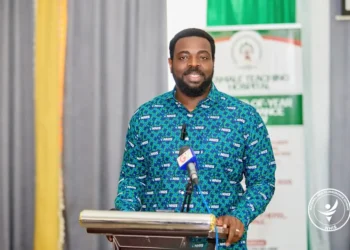In an era where transparency and accountability are paramount to democratic governance, the recent refusal by the Presidency to grant a Right to Information (RTI) application submitted by the Media Foundation for West Africa (MFWA) has sparked significant concern.
The application sought access to the complete KPMG audit report on the revenue mobilisation agreement between the Ministry of Finance, Ghana Revenue Authority (GRA) and Strategic Mobilisation Ghana Limited (SML).
The Presidency’s denial, justified under certain provisions of the RTI Act 2019, is being challenged by several legal practitioners and activists, including seasoned journalist and private legal practitioner, Samson Lardy Anyenini Esq.
Mr Anyenini began his argument by stating that the RTI Act 2019 was designed to give full expression to Article 21 of the 1992 Constitution, which guarantees the right to information.
He noted that while Sections 5-17 of the Act detail exemptions to disclosure, these exemptions are carefully circumscribed.
The renowned lawyer emphasized that the mere fact that information is associated with the Presidency does not automatically render it exempt, asserting that information containing factual or statistical data should not be withheld.
Mr Anyenini further pointed out that information is only exempt if its disclosure is likely to undermine the deliberative process or prejudice national security.
“Even such exempt information can be disclosed if the President or Cabinet gives approval.
“By section 17, even exempt information may be disclosed by public institutions once the disclosure will reveal violation or failure to comply with the law, miscarriage of justice, abuse of office or neglect to perform official duties, imminent and serious threat to public safety, public health or morals, prevention of disorder or crime or protection of or freedoms of others, and other matters of public interest and the benefit of the disclosure clearly outweighs the harm or danger feared”.
Samson Lardy Anyenini Esq., Private Legal Pratitioner
The Private Legal Practitioner thus emphasized that the mere association of information with the high office does not inherently make it exempt from disclosure, asserting the inappropriateness of the Presidency’s decision to refuse the RTI request by the Media Foundation for West Africa.

This, he argued undermines a fundamental principle in democratic governance, where the public has the right to access information, particularly when it involves significant public interest, such as the audit report in question.
Moreover, Sulemana Braimah, Executive Director of the Media Foundation for West Africa reinforced Mr Anyenini’s argument, highlighting what he deemed as a critical misinterpretation by the Presidency in invoking Section 5 of the RTI Act.
Mr Braimah noted that the rationale of ongoing deliberation as a basis for the refusal of the KPMG report by the Presidency is unfounded since the report has already been submitted to the President, who has publicly communicated its contents and his position on it.
He emphasized that the President’s acknowledgement of the report negates any claim that its release would interfere with ongoing deliberative processes.
The Executive Director for the Media Foundation for West Africa thus expressed his organization intention to petition the Right to Information Commission to challenge the decision of the presidency on its request.
From the foregoing, it is obvious that the implications of the Presidency withholding the audit report on the Strategic Mobilization Ghana Limited deal could be far-reaching.
Transparency in government operations fosters public trust and confidence while conversely, withholding information can lead to suspicion and speculation, potentially damaging the credibility of the administration.
As Mr Braimah aptly puts it, the only reason to hide such a report would be if there is something in it that the President would prefer the public not to see, else there is no need for the Presidency to insist on not making the audit report public
As earlier intimated by the private legal practitioner, Samson Lardy Anyenini, the RTI Act provides that even exempt information can be disclosed if it reveals a violation of the law, abuse of office, or other matters of significant public interest where the benefits of disclosure clearly outweigh the potential harm.
It is therefore worthy to emphasize that the call for the Presidency to review its decision and publish the full KPMG audit report is not just about adherence to legal stipulations but also about upholding the principles of transparency and accountability.
In a democratic society, the public has the right to know how their resources are managed. By releasing the report, the Presidency would not only comply with the RTI Act but also reaffirm its commitment to openness and good governance.
Failure to do so may lead to increased public distrust and speculation, something no administration should welcome.
It is imperative for the sake of transparency, accountability, and the avoidance of unnecessary controversy that the full audit report on the controversial SML deal be made public.
READ ALSO: Procurement Infractions Fueling Grand Corruption in Ghana






















